Do other countries offer better banking than the UK?
- Published
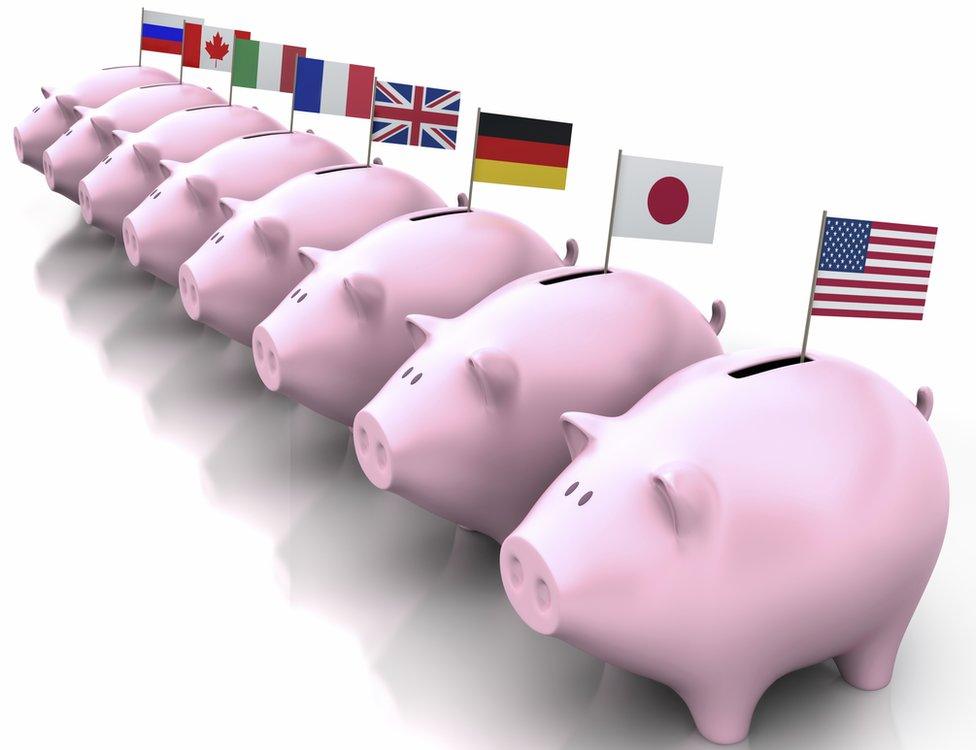
In this series, we have heard how free banking in the UK has been labelled "a misleading con-trick", how customers bewildered by the range of accounts on offer refuse to switch, and how UK consumers get a raw deal should they choose to bank on the internet.
So if tracing the cost of your bank account is as complex as strands of spaghetti, are other countries any better at untangling the mess?
Are their banking charges lower - or at least clearer - and are consumers happier?

Overdraft charges
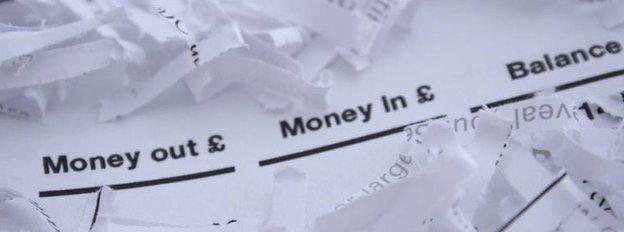
The Competition and Markets Authority has announced an extension of its inquiry into the current account market.
The competition watchdog said that more time was needed for the industry and consumer groups to consider its new proposals, external on softening the impact of overdraft charges on bank customers.
Suggestions include a "monthly maximum charge", an upper limit on combined interest, daily charges and unpaid item fees. This would not be a regulated cap but set by individual banks.
There would be expanded use of grace periods, to allow customers time to top up their account and avoid overdraft fees. Imminent overdraft alerts would be provided as a standard service. Warnings would be sent out by text, email and within apps to tell people that they are about to incur overdraft charges.
Under the proposals, banks would not be able to include arranged overdrafts in the amount of "available funds" which they tell customers they can use. A final decision will be made in August.
The plans were immediately criticised by consumer group Which?.
It said prompts were not enough, and that tougher rules should be set.
"The regulator should use this further extension of their inquiry to bring forward stronger solutions to tackle unfair charges and ensure banks are held to account for how they treat their customers," said Which? executive director, Richard Lloyd.

Vive la banque
So, do other countries do banking any better than us Brits?
Along with a cafe serving pastis - and a boulangerie, of course - every small town in France has at least one bank.
But unlike the UK's free-if-in-credit model, in France you will pay to use a bank, whether you are in credit or not.
You will pay a monthly fee to have a current account; you will pay to have a debit or credit card; and you will pay to use a cash-point if it is outside your local region, or if you are using another bank.
Credit Agricole, one of France's largest providers of current accounts, publishes no less than twelve pages of its charges, external, not counting overdraft rates.
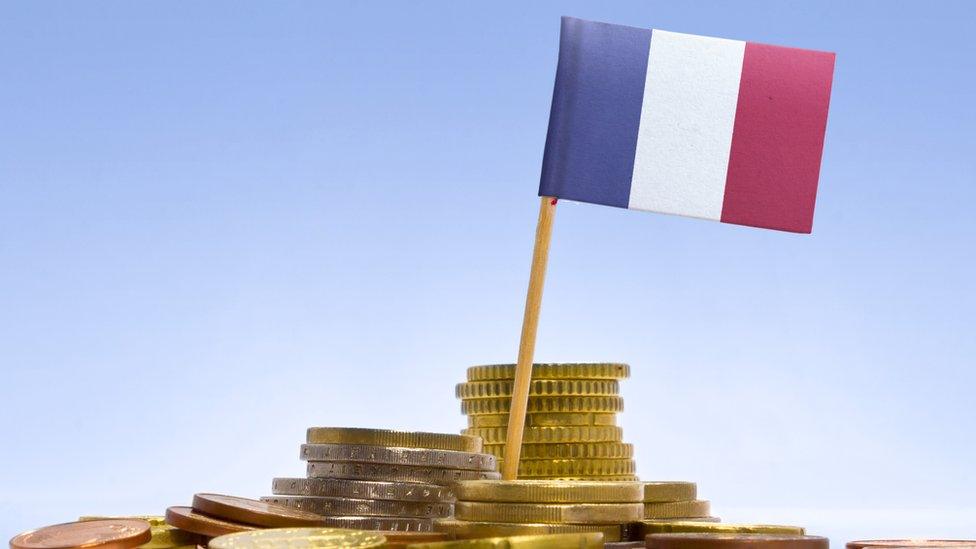
While such charges may look pricey to British eyes, they may actually offer much better value - depending on your spending habits.
"When you look at France, the fees for a missed payment, the fee for sending you a letter, and the overdraft fees are far, far, far lower than in the UK," says Gareth Lodge, an analyst with the US consultancy firm Celent.
But whether you get better value in France varies according to what sort of customer you are.
"If you don't use a card particularly, if you've got very few bills, it probably works out more expensive in France than in the UK," says Lodge.
"If you are using an overdraft a lot more, then that might balance out."
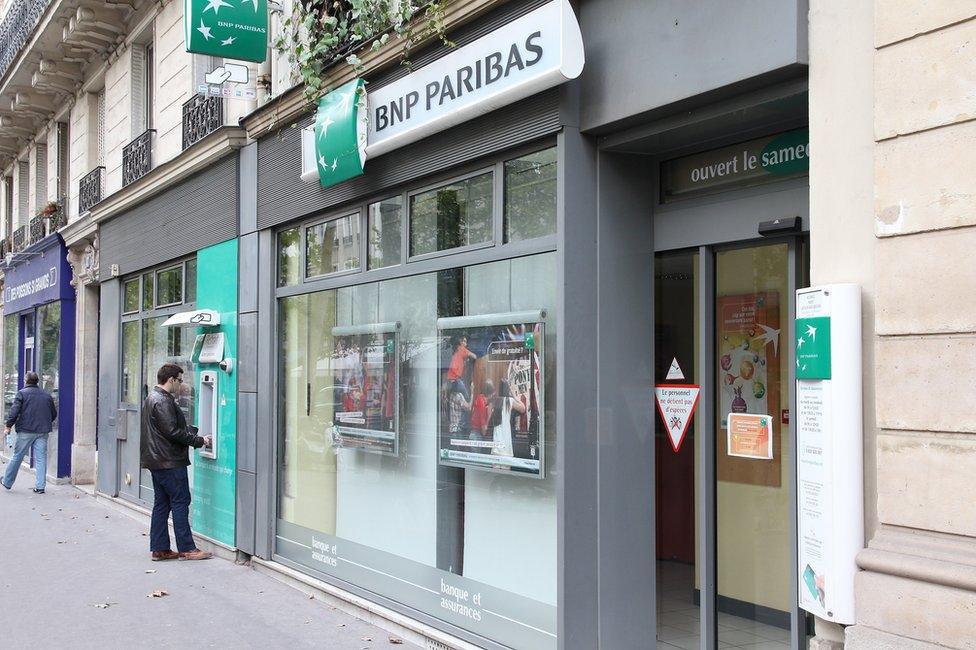
In France you pay to use a bank whether you are in credit or not
But consumer groups in France are just as frustrated about bank charges as their equivalents in the UK.
The fees may look more transparent, but the campaign group CLVC wants greater accountability. For example, it argues that transaction fees should accurately reflect the actual cost of processing, say, an ATM payment.
CLVC has also calculated that the average cost of the most basic account in France, including a debit card, is around £50 a year.
In a 2016 survey, it said that just 57% of those questioned would recommend their bank to someone else - although overall 72% were happy with their provider.
Switching
The number of people switching accounts in the UK continues to fall, much to the disappointment of the government and regulators.
So are they any better at switching abroad?
For its long-running study on bank accounts, the Competition and Markets Authority (CMA) looked at the example of the Netherlands, a market they said was comparable to the UK.
On average, it found, external that Dutch consumers pay an average of £53 a year for their accounts. Yet, against expectation, that doesn't make them any keener to switch. In a survey local regulators found that 73% of bank customers had never switched at all.

Consumers in Holland are reluctant to switch accounts
The same could be true in many other countries too.
"I have no proof, but my guess from understanding how the US market works, and how the Dutch and Spanish markets work, is that there's far less switching in other countries," says Gareth Lodge.
"Particularly in the USA and Spain, it's very much your local branch. You stick with it, and you go where your parents went."
However, others suggest that competition is much more lively in France.
"In the French market, there's significantly higher switching," says John Lyons, the retail and commercial banking leader at PricewaterhouseCoopers (PwC).
But that, he says, is because most of the mainstream banks have developed better value internet brands.
"Those digital-only subsidiaries tend not to charge as much as the standard banks. So what you see is a migration from the traditional banks to the internet-only accounts." British banks, take note.
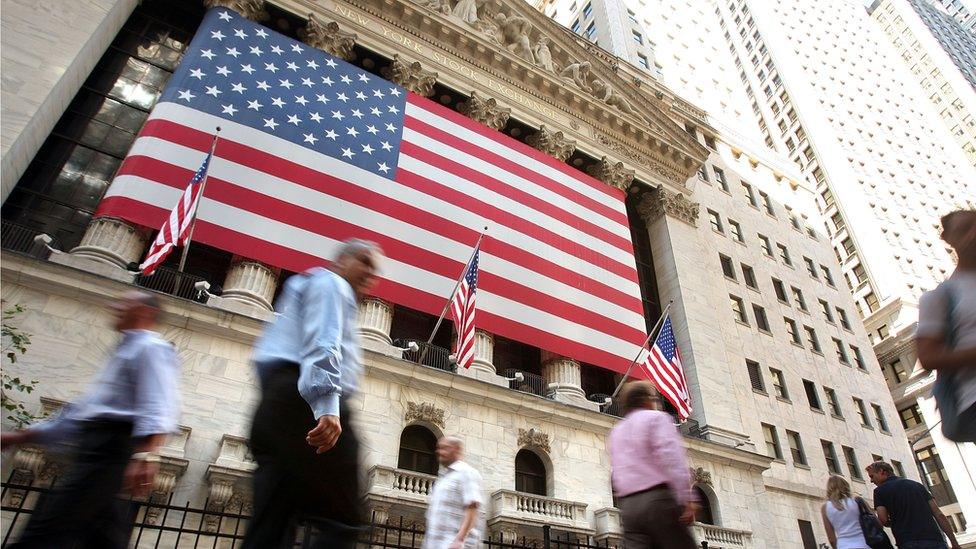
Land of the cheque: the US banking model is very different
'Two-thirds of all cheques'
If you thought banking sounded expensive in Europe, it can be even pricier in the US.
Most banks charge a monthly fee of up to £10, unless you have a healthy balance sitting in your account.
The Bank of America,, external for example, charges just under £100 a year, unless you maintain a positive balance of £1,028, or you pay in at least £171 every month.
Some in the US banking industry are therefore amazed by the UK's free-if-in-credit model.
"When Americans hear about the UK market, they think it must be ultra-competitive - which is the opposite of what the CMA thinks," says Lodge.
But most US banks operate at a state level. If you try to cash a cheque "out of state", for example, you're likely to be met with a shake of the head.
And backward though it may seem to Europeans, most Americans are still paid by cheque.
In fact, no less than two-thirds of all the cheques written in the world are written in the USA.
"It's a different model," says John Lyons.
"They have far more regional banks, which are locally-orientated. Generally they are behind."
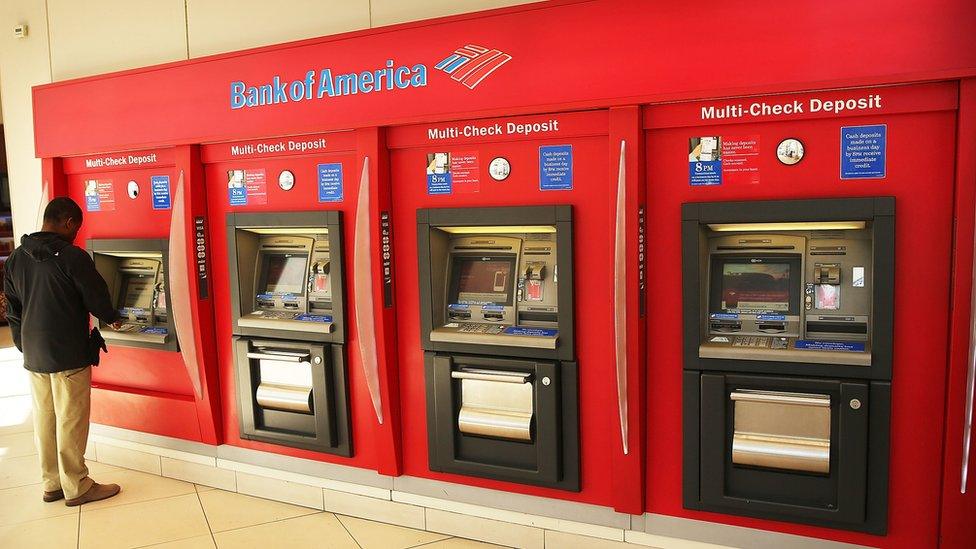
The US banking sector is far more regionally-based
Best value
So which country offers the best value to consumers?
One piece of research into this was done in 2006 by the consultancy Oxera. Not only is it relatively historic, but it was also commissioned by the British Bankers' Association, an organisation always keen to talk up the value provided by UK banks.
But some analysts believe it still provides useful information.
In all five categories - students, young professionals, low-income families, median-income families and pensioners - the UK came in the top three for value as far as current accounts are concerned.
Australia, Canada and Italy provided the worst value.
But experts agree that the UK model is only a good deal in comparison to other countries if you stay in credit.
"If you get free banking, and you utilise it mainly for free transactions, I think you get exceptional value," says John Lyons.
"If you're part of the segment that relies on other products that banks use to cross-subsidise those costs, you could argue you're not getting good value."
As long as you don't think "free" banking is actually free, the deal for prudent consumers in the UK may not be quite so bad, after all.